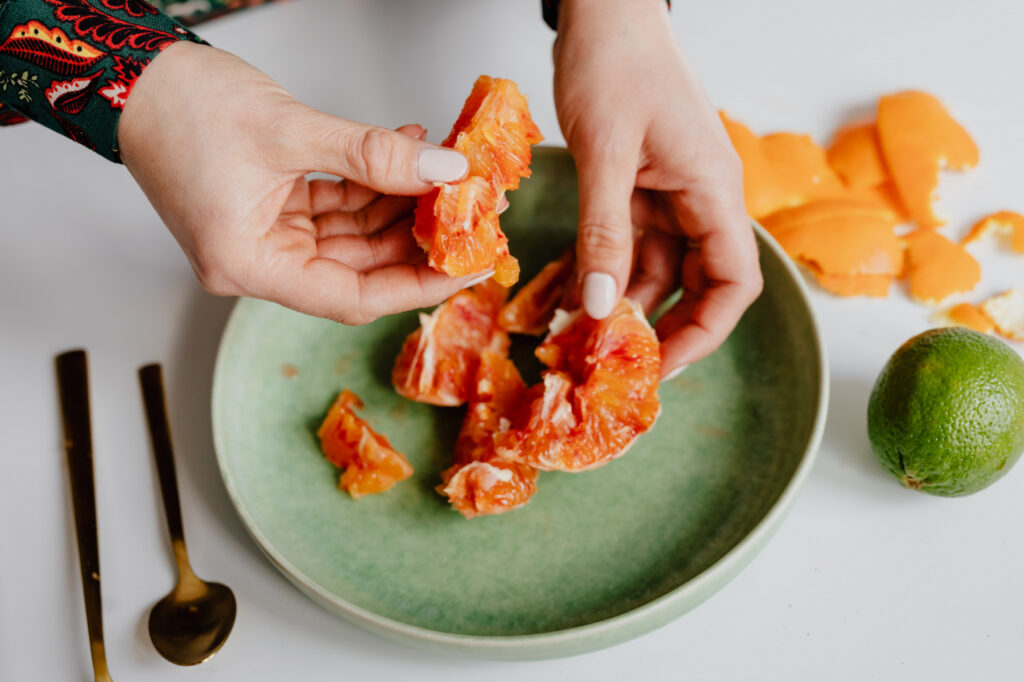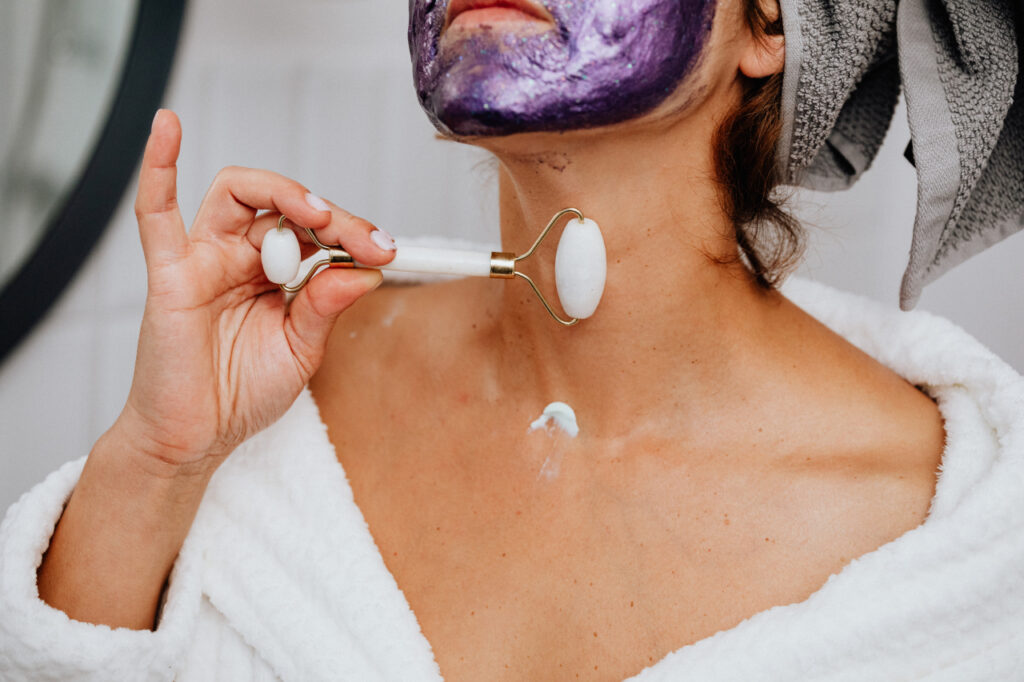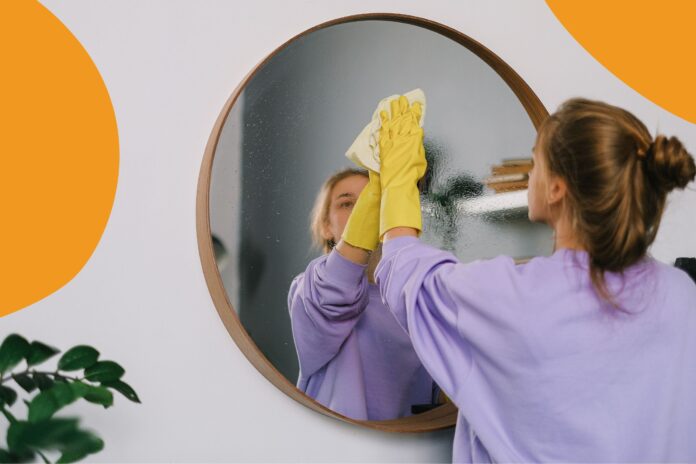The American writer Mark Twain once said that ‘’wrinkles should merely indicate where smiles have been’’.
The French author Jules Renanrd concurs, suggesting ‘’wrinkles are engraved smiles’’, which is a wonderful sentiment, sure, but perhaps not one rooted in scientific consensus.
But if your fine lines are causing you to smile less, then there’s no harm in looking for ways to reduce them. Sure, in the last two and a half years, the trials and tribulations of a global pandemic, long stints spent indoors and ongoing geopolitical turmoil have wreaked havoc on our skin.
Now, as we emerge back into the world with newly minted fine lines and grey hairs, we all want to ensure we’re looking as glowing as possible. We’re here to help with that; here are 7 IDEAL ways to maintain youthful skin.
Get More Vitamin C In Your Diet
According to a 2007 study published in the American Journal of Clinical Nutrition, middle-aged women who consumed more vitamin C appeared to have fewer wrinkles and less skin dryness.
Vitamin C is a vital nutrient for skin and helps us produce collagen and elastin (essential to keep the skin looking young). Applying Vitamin C directly to your skin is a fantastic way to easily absorb this nutrient, but even better is including ingredients containing the good stuff in your diet. Some of the most Vitamin C rich ingredients include citrus fruits (particularly oranges), strawberries, broccoli, blackcurrants and brussels sprouts.
Read: 7 reasons you need Vitamin C

Eat More Antioxidant Foods
Studies have also shown that those who consume a diet rich in fresh fruits and veggies suffer less oxidative damage to the skin. Plus, both fruits and veggies contain plenty of antioxidants, which may reduce the signs of ageing.
A study published by Tufts University showed that anthocyanins in blueberries (the pigments that give them their deep, purple colour) appear to combat oxidative stress, which is one of the main causes of ageing. Strawberries and tomatoes may also help; both are rich in lycopene, which helps improve your skin’s natural protection from ultraviolet radiation.
Finally, green tea contains antioxidants which may help protect cells on your skin from DNA damage caused by the sun’s UV A and UV B rays. Speaking of which…
Avoid Prolonged Exposure To The Sun
That ‘healthy’ bronze glow after a few hours in the sun certainly looks good. But healthy it ain’t. Prolonged exposure to the sun, especially without appropriate protection, can lead to wrinkles, skin damage and worse. When UV rays from the sun penetrate our skin, they damage its elastic fibres, which leads to wrinkles.
When trying to reduce the appearance of fine lines, prevention is better than cure, as they say. To help reduce the sun’s effect on our skin and keep those fine lines at bay, limiting our time in the sun is essential. What’s more, it’s important to use a good sun cream with an SPF of over 20 every time you step out for a prolonged period in the sun. Though it might stop you getting a tan, doing so will help keep your complexion glowing for longer.
Potentially Stimulate Collagen Production
Long story short, collagen is made up of essential amino acids, and is the glue that holds you together, as it binds tissues and cells, maintaining their integrity. It is the main structural and most abundant protein in your body, responsible for keeping everything in place. Whenever you consider how strong your joints or teeth are or how exceptional your skin elasticity is (what, you don’t do that?) you have collagen to thank for that.
Unfortunately, as we grow older, our bodies get worse at producing collagen, which leads to (among other things) hair loss, wrinkles, or joint pain. Additionally, a more modern version of consumption (toxins, pollution, stimulants, processed foods) also contributes to the detriment of collagen production.
Finding ways to stimulate production of the good stuff, then, whether via diet or technology, can help with your complexion as you age. Some foods that may give you a collagen boost include beef and pork bone broths, poultry, oily fish and eggs. There are also supplements on the market, including collagen drinks, tablets, gummies and shake powders.
It should be noted that the efficacy of collagen boosting diets and supplements is still being studied, with conclusions not yet fully drawn, and no supplements should be used in place of a full, balanced and wholesome diet.
Anti-Aging Creams & Moisturisers
The amount of anti-ageing creams and moisturisers on the market today are endless, with many making promises we’d love to believe, but can’t.
Such a wide range of options presents something of a paradox of choice, and choosing the best product can be overwhelming. Don’t get stressed by it all; that won’t help with those lines.
Generally speaking, it’s a good idea to prioritise products that contain retinoids, alpha hydroxy acids, and niacinamide. Retinoids and niacinamide are known to reduce the appearance of fine lines and wrinkles and alpha hydroxy acids (AHAs) possess a whole host of benefits for your skin, including boosting your ability to remove any dead skin cells, preparing skin for better absorption of other various skincare products, and also promoting the growth of radiant, smoother skin.

Treatments & Procedures
If you feel your confidence is being adversely affected by the appearance of fine lines and have decided on a more defining, long-lasting procedure carried out by a professional in a clinic, then there are several options available.
- Botox
Choosing to have botox injections is viewed by many as the most surefire way to eliminate the appearance of fine lines and stop them from turning into deeper, more noticeable wrinkles. That said, it should be noted that one treatment only lasts for 3 to 4 months.
Botox works by freezing the muscles in your face to stop those muscles from contracting in ways that would lead those fine lines to turn into more prominent, deeper wrinkles.
- Dermabrasion
Dermabrasion can also make a difference in the appearance of wrinkles and fine lines. The procedure uses an exfoliating technique that works to remove a layer of the skin, acting to ‘sand down’ the skin by removing any dead skin cells in the process.
Whilst Dermabrasion is an effective way of reducing prominent fine lines and wrinkles, it is also used to reduce the appearance of acne scars, sun damage, or any uneven texture or pigmentation to the skin. The procedure can be carried out by a professional dermatologist and produces results after just one session.
- Microdermabrasion
Very similar to dermabrasion, microdermabrasion works to remove a layer of skin, also acting as an exfoliant. The difference between the two is that microdermabrasion takes off a much thinner layer of skin than dermabrasion. It entails the use of a rotating brush that works to stimulate the formation of collagen in the deeper layers of the skin. This treatment should always be carried out by a specialist within the cosmetic field.
- Blepharoplasty
Blepharoplasty focuses solely on removing and tightening the excess fat that has developed beneath the eyes. It is always important when considering undergoing any surgical procedures to seek out a qualified and experienced plastic surgeon.
- Facelift
During the procedure for a facelift, excess skin is removed and also tightened resulting in skin appearing much smoother. Though it’s true that a facelift is the procedure with the most longevity in reducing the appearance of fine lines, it’s certainly not permanent; you can expect such a procedure to last for a maximum of ten years.
All cosmetic surgery procedures in the UK must take place in a hospital or clinic which has been registered with the Care Quality Commission (CQC), which publishes ratings regarding the quality of care offered. You can check here to see if the clinic is registered; simply enter your postcode or the same of the clinic.
In addition, any cosmetic surgery in the UK must be performed by a registered doctor. You can check on the General Medical Council online register to see if the person carrying out your surgery is registered.
Beauty Sleep
Right, let’s go to bed. No, not because we’re tired of sharing these tips with you. We’re just keen to catch up on our beauty sleep!
This is because a lack of sleep causes the stress hormone cortisol to be released, which in turn encourages inflammation in the skin, causing flare-ups in conditions like acne and even eczema. On the flip side, during sleep, your skin rebuilds collagen, which is essential in boosting your skin’s elasticity and bounce, and in reducing the appearance of fine lines.
Read: How to sleep through the night without waking

The Bottom Line
If you’re keen to reduce the appearance of fine lines and wrinkles, then there are a whole host of options available to you, from eating more blueberries and sleeping better all the way to considering a cosmetic procedure. Regardless of how you choose to give your complexion a boost, remember that you’re beautiful, inside and out, and just the way you are!





